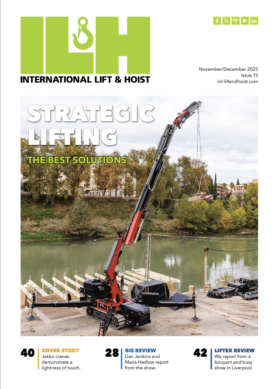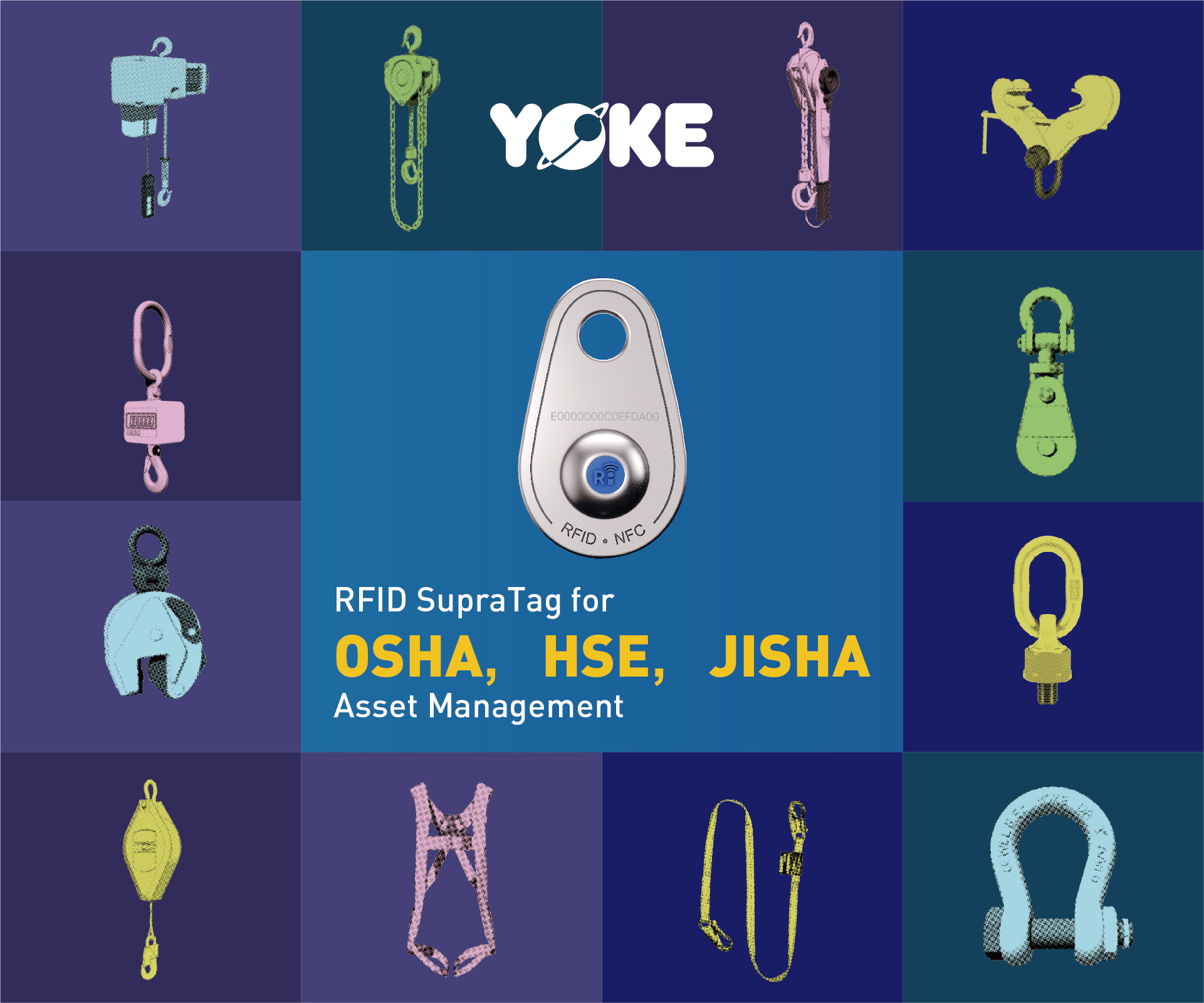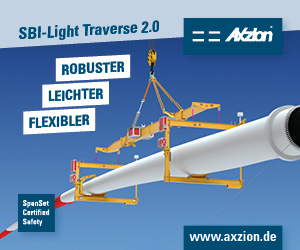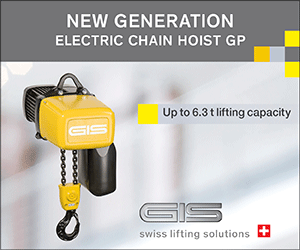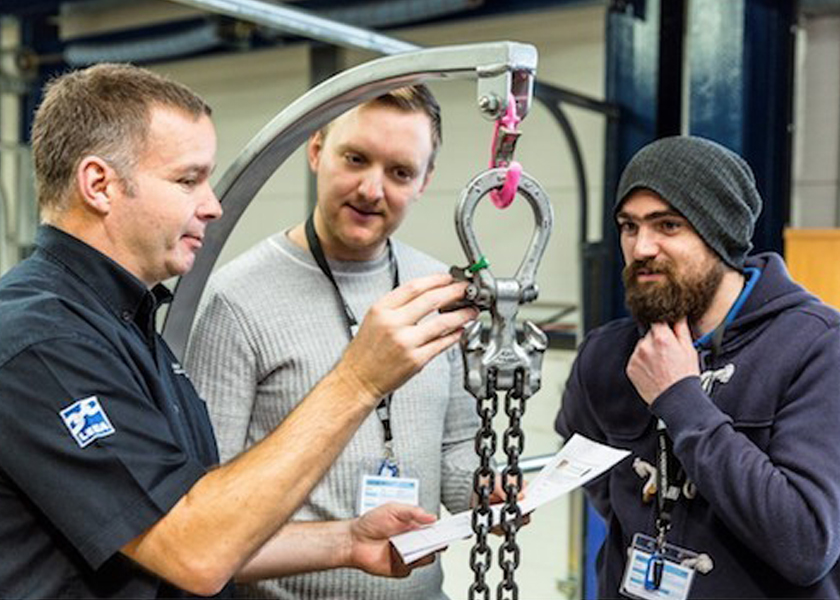)
Raising our recruitment game
One of the biggest challenges in our sector remains bringing in new blood – how do we successfully attract, recruit, and retain the skilled people who will be the future of our industry? Dan Jenkins reports on how the LEEA is rising to this challenge.
ACROSS the world, almost all directors and managers of lifting equipment companies are faced with the same challenge: How do we find and recruit skilled people? Covid forced lifting companies to re-prioritise, but as Governments increasingly get a handle on the pandemic, the skills shortage is once again coming to the fore.
The Lifting Equipment Engineers Association (LEEA) is at the forefront of the battle to bring in new blood to the lifting industry. Ross Moloney, LEEA’s CEO, said: “The concerns around recruiting people are going to be in the top ten challenges of any member. There are more urgent issues right now due to covid, but as the economy upturns it will become a more pressing issue once again.
“Individual companies have to make themselves look attractive to potential employees, but it is our job to make the industry as a whole attractive. A key part of this is this year’s Global Lifting Awareness Day (GLAD).”
Covid impact
The global pandemic shifted priorities for the sector, with some segments such as entertainment having to fight just to survive. “It is impossible to ignore the impact of covid,” added Moloney.
“18 months ago, recruiting skilled employees was the number one or two issue which kept managing directors at our medium-sized members awake at night. Covid clearly caused a contraction in certain parts of our industry, but it was very localised. Fifty per cent of our membership reported business declining, while the other fifty per cent saw growth. For example, those serving the entertainment sector were badly hit, but third-party inspectors were able to continue to trade and have done alright. Similarly, the Nightingale emergency hospitals in the UK could not have been built so quickly without our members
“However, the vast majority of our members are now either back to normality or approaching something like it. This has pushed issues around recruitment back up their agendas.”
The LEEA is focusing on three main areas to help its members: Raising the profile of the industry as a great place to work, with excellent career prospects; initiatives to help more young people start their careers in the sector; and looking at mature workers with transferrable skills. “These are the main talent pools we are looking to access,” said Moloney.
Making the case
The first step is making the case for the lifting equipment sector as an attractive prospect for potential recruits. ““We are a fundamental part of the economy and our way of life, yet our industry is not often one that a young person thinks about joining,” said Moloney. “If you speak to a 14- or 15-year-old, they might want to work in engineering, but they won’t be specifically thinking about working in lifting equipment engineering.
“Schools no longer have to employ a specialist careers adviser, so teenagers are not always exposed to the strength and breadth of opportunities out there for them. It is very difficult for a relatively new industry like ours to break into that careers advice world.”
The association is promoting its Think Lifting campaign and classroom resources to parents, pupils and schools. “We are working to get school teachers to use these resources in Physics lessons,” he added.
“LEEA sees its function in two parts: we want to support our members to reach excellence, but we also must work on behalf of our members to raise their profile with end user markets such as aeronautical, maritime, construction, logistics, entertainment, military, engineering and manufacturing. These are, of course, a key part of any trade association’s activities.
“Crucially, however, by raising the profile of lifting engineers we can address one of the biggest challenges we face: recruiting new talent into the sector.”
Attracting talent
While raising awareness will encourage young people to consider a career in the lifting industry, they also need a pathway to qualifications. “It is all well and good making the case that this is a wonderful industry, but if there is no path for young people to follow, you are just engaging in sophistry,” said Moloney.
The LEEA is looking to create this route through apprenticeships. It is a global organisation but has started this process in the UK, where it is headquartered. The UK has a current skills shortage but is facing a cliff edge scenario due to an ageing workforce. Trade association EngineeringUK has been tracking the annual demand for engineers and technicians needed just to keep pace with infrastructure and other engineering projects. It estimates that 203,000 roles are required annually, comprised of 124,000 engineers and technicians with core engineering skills, plus 79,000 related roles requiring a mix of engineering knowledge and other skills sets like project management.
EngineeringUK also estimates the average age of an engineer in Britain as being mid-50s, meaning that many are due to retire in the next decade. Its latest report identified a shortfall of between 37,000 and 59,000 in meeting the annual demand for core engineering roles requiring Level 3+ skills and found that almost a fifth of engineers are due to retire by 2026 – creating a skills, knowledge, and experience gap.
Blazing a trail
LEEA sought discussions in 2018 with the UK’s Institute for Apprenticeships (IFA) to start the ball rolling on an apprenticeship specific to the lifting industry. However, it has found the process to be frustratingly slow. “I am fielding calls on a daily basis asking me when this will be ready,” said Moloney.
The main stumbling block is finding further education colleges that will run the apprenticeship programme. They price up how much it will cost to deliver, which enables the IFA to allocate the appropriate funding. “We need colleges to come forward,” added Moloney. “This will allow the IFA to allocate a funding band and once this is in place, we can start delivering the apprenticeships.
“It is likely to be the smaller, private training providers who end up delivering it, as opposed to the huge city colleges. The larger colleges tend to focus on the broader subjects such as IT and engineering, etcetera. Our apprenticeship is more niche – not necessarily in terms of numbers but in terms of specialism. We are creating a brand new pathway here, so we have to make the argument for it.
“We want to get high quality new recruits into the industry. By having a pathway, we increase our chances. Without that pathway, we risk ending up with the candidates that no one else wants. We have to recognise that we are in a race, competing with lots of other sectors.”
In the meantime, the LEEA has set up a Trailblazer group to create the Lifting Equipment Examiner apprenticeship. “Our apprenticeship standard was written by employers in the sector, not by us, as trade associations are not allowed to take ownership,” said Moloney.
“Our Trailblazer group put together a Level 3 standard for lifting technicians, which is A-Level equivalent. It is a proper, technical, advanced engineering apprenticeship that is the key step into what is undeniably a great career that can take you around the world while you earn a good living.
“The big question for us is, how do we get smaller training providers to put in the work required to so we can get the funding band allocated? We are working on that right now. The pace of change can be frustrating but we are absolutely determined to see it through.”
Another challenge is that education and training is a devolved matter in the UK, meaning that Scotland has its own version of the IFA, called Skills Development Scotland. Creating an apprenticeship north of the English border is important to LEEA, as it has a high number of members working in the North Sea oil and gas sector. “We have as many members in North-East Scotland as we do in Australia and New Zealand,” said Moloney.
“We have had good conversations with Skills Development Scotland They are reviewing their entire engineering suite and will be consulting with LEEA to get the skills that our industry needs and that the Scottish economy needs.”
LEEA is also working on graduate recruitment initiatives. It is sponsoring an award at Robert Gordon University in Aberdeen, at both graduate and Master levels. The association chose Robert Gordon as it already offers an apprenticeship containing elements of offshore and lifting equipment engineering.
Oven Ready
Establishing apprenticeships will help to mitigate the risks inherent in an ageing workforce, but more needs to be done to address the skills shortage right now. “By their nature, young people have never worked in the industry before, meaning that they do not have the formal qualifications that would make them ‘oven-ready’ for work,” said Moloney.
“What about those people who have the experience and skills, but haven’t used them as part of the civilian workforce? How do we stop them from retraining when they leave the armed forces?”
The LEEA is tackling this through its Military Transition Scheme (MTS). This works with the UK’s armed forces to identify and recruit former services personnel who already have the transferrable skills needed for our sector.
“Any member of the armed forces can get a free LEEA foundation course within two years of leaving the service,” said Moloney. “Our course is a stepping stone into a great career for them, and gives our members access to pool of workers who are work ready.”
MTS started in 2018 as the 75/75 programme, to make the LEEA’s 75th anniversary. This aimed to help 75 ex-military personnel to transfer their skills into the lifting equipment industry. MTS provides Foundation level LEEA training, followed by work placements with association members. In this way, it creates a conduit into the lifting equipment industry for service leavers.
Veterans and reservists could be a perfect fit for lifting businesses seeking highly professional, self-motivated individuals equipped with initiative and a wide range of transferrable skills in areas such as engineering, leadership and management, communications, organisation, problem solving, teamwork and health and safety.
Participants complete the online LEEA Academy, eLearning Foundation training course with a view to achieving a work placement. An online tutor and LEEA staff supported each trainee as required. Further LEEA training will be available for those employed by its members, including an advanced diploma course, at 50 per cent discount.
MTS also enables participants to add their details to a recruitment database which can be accessed by LEEA members, helping to match up participants with nearby employers. Furthermore, LEEA members can advertise vacancies at a discounted rate on the primary recruitment website for ex-service personnel. “We are far from becoming a recruitment agency, but we are a portal to recruitment for these ex-service personnel and for our members,” added Moloney.
An MTS event will be held online as part of GLAD 2021, which takes place on 7th July this year. While it is UK focused at present, LEEA is already in discussions to roll out to other regions across the globe.
The association sees the UK as the starting point for a global roll-out. “Australia, Abu Dhabi and Singapore are examples where we are already working globally on tackling recruitment,” said Moloney. “The UK can be a template for s that we can roll out worldwide. Fundamentally, this is the right thing to do.”
Links and resources
LEEA Military Transition Scheme – overview: https://leeaint.com/military-transition-scheme
LEEA Military Transition Scheme – application form: https://leeaint.com/military-transition-scheme-application
LEEA Military Transition Scheme – further information: academysupport@leeaint.com
ENDS



